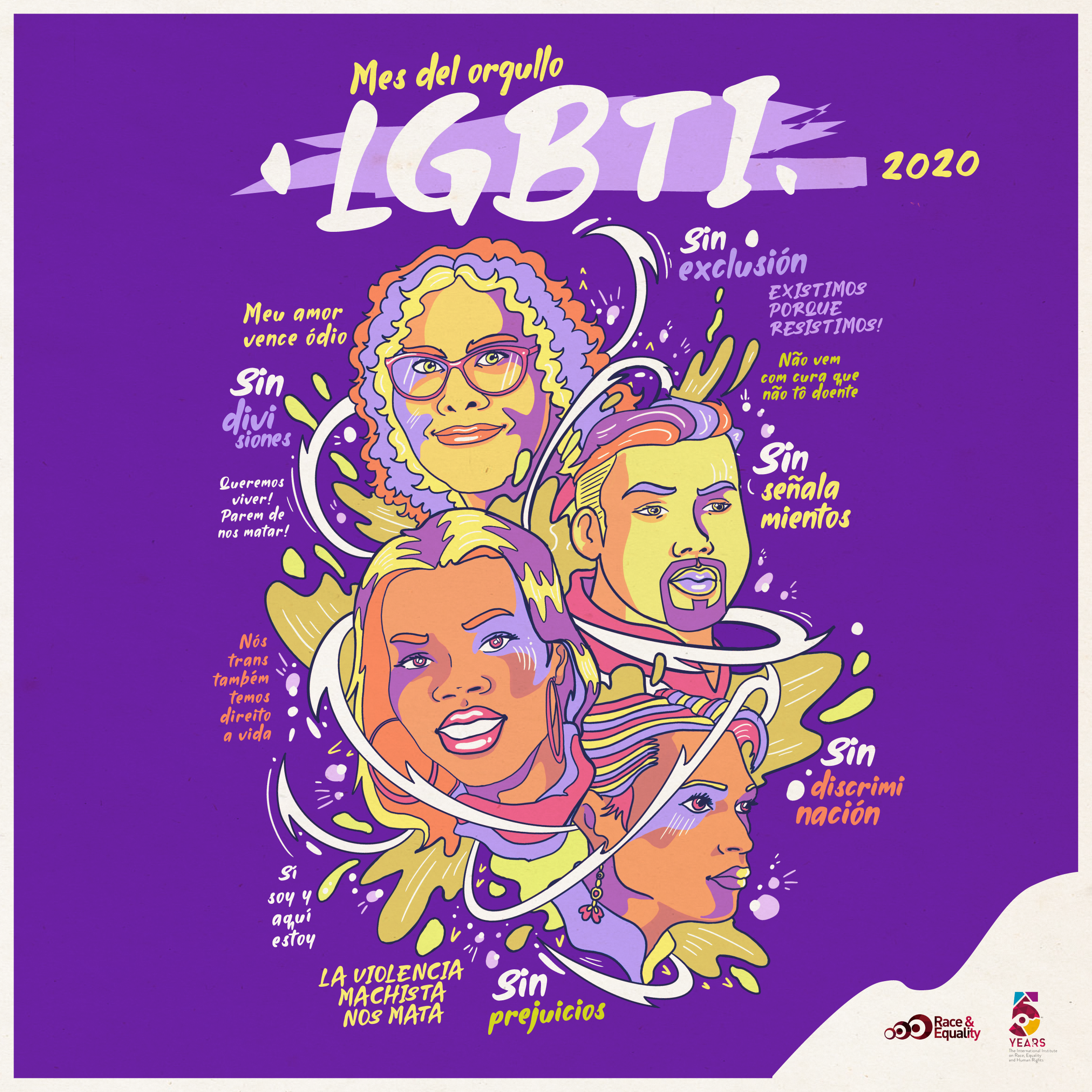Pride Month: A Time to Celebrate and Resist
This year marks fifty-one years since the Stonewall Inn riots. This year we celebrate in isolation or with social distancing measures in place; nevertheless, we celebrate and we resist. The […]

This year marks fifty-one years since the Stonewall Inn riots. This year we celebrate in isolation or with social distancing measures in place; nevertheless, we celebrate and we resist. The Stonewall Inn riots empowered generations to come and galvanized the LGBTI movement around the world, it became a symbolic call to arms. Stonewall said enough is enough and the personal became political.
Fifty-one years later we have a lot to celebrate. Many countries around the world have recognized the existence of LGBTI people and have passed laws prohibiting discrimination due to sexual orientation and gender identity. Transgender people also have more rights now and can legally change their names in many countries. In addition, in many countries, LGBTI can marry the person they love regardless of their sex or gender. In fifty-one years, the LGBTI movement has accomplished many things that were only dreamed of pre-Stonewall riots.
In Latin America, this month we celebrate Costa Rica’s legalization of same-sex marriage in compliance with the Inter-American Court`s Advisory Opinion 24/17. We also celebrate Brazil’s Supreme Court decision to allow gay men and bisexual men to donate blood. The decision; however, did not include travesties and transgender women. The last decade has seen many Latin American countries pass legislation in favor of LGBTI rights. There are now seven countries in Latin America that recognize same-sex marriages or unions[1], eight countries that allow transgender people to legally change their name[2], and countless others have anti-discrimination laws in place.
However, the sexual orientation and gender identity of LGBTI people in the region is constantly questioned. The rise of fundamentalist groups and hate speech has meant our lives and achievements are also threatened. The murders of LGBTI persons exhibit a profound hate, a sort of macabre scenario, just because we deviate from the binary. LGBTI people have also not been included in any government’s response to COVID-19, even though they represent one of the most vulnerable populations and are more likely to work in the informal sector and are therefore more vulnerable. Other countries in the region implemented gender-based measures which meant transgender people and gender diverse people were discriminated against. In Brazil, in the middle of COVID-19, murders against transsexual women and travesties continue to increase[3]. The fact is that we continue to live in a cis-heteronormative, machista society that continues to silence LGBTI voices, but we resist.
Pride Month is also a month to celebrate the historical memory of the LGBTI movement around the world. We must not forget the LGBTI lives lost during war. Latin America is also a region that continues to deal with the legacy of armed conflict and LGBTI victims. In Peru, May 31 is recognized at the national day against hate crimes and is a day where the LGBTI community commemorates the LGBTI lives lost during the armed internal conflict. To this day, the exact number of people who were killed because of their sexual orientation or gender identity is unknown, this was never a part of the Truth Commission’s mandate.[4] However, the armed forces and guerilla groups both instituted “cleansing campaigns” which looked to eliminate the LGBTI population in the country. The signing of the Peace Agreement in Colombia presents an opportunity to learn from Peru’s errors and include LGBTI voices in the historical memory of the armed conflict and build a post conflict society that breaks the cycle of violence against LGBTI people.
This month is a time to celebrate but also to reflect on the achievements we have made and the coming struggles. We are living in a unique moment where the structural inequalities and historical marginalization of the LGBTI community is more apparent than ever, COVID-19 is proof of that.
A post-COVID-19 world must include the LGBTI community, promote tolerance, and education – but what does that look like for a region that is so unequal, carries a legacy of colonization, and condemns whoever is “different”?
At Race and Equality, we make the following recommendations to States:
First, States must educate the population on sexual orientation and gender identity. Many of the prejudices against the LGBTI community come from a place of ignorance and informing the population is a way to combat this. States can incorporate an LGBTI program in their public tv channels.
Second, there is an urgent need to train all public authorities, not only on sexual orientation and gender identity, but also on LGBTI rights as well. States should mandate that all public authorities receive a course on these issues and current international jurisprudence on LGBTI rights.
Third, a gender identity law is crucial for the recognition of the rights of transgender people. It opens the door to other rights, allowing them to register under their social name at the bank or school and avoid the stigma their biological name carries.
Fourthly, all States should sign and ratify the Inter-American Convention Against All Forms of Discrimination and Intolerance[5].
Finally, States need to collect disaggregated data on LGBTI people. Public policies will only work if we know where the gaps are.
[1] https://www.bbc.com/mundo/noticias-america-latina-52803210
[2] https://www.eltiempo.com/mundo/latinoamerica/trans-en-america-latina-una-poblacion-en-constante-riesgo-480934
[3] https://antrabrasil.files.wordpress.com/2020/05/boletim-2-2020-assassinatos-antra-1.pdf
[4] https://idehpucp.pucp.edu.pe/analisis/31-de-mayo-recordando-los-crimenes-de-odio-durante-el-conflicto-armado-por-ariana-jauregui/
[5] http://www.oas.org/en/sla/dil/inter_american_treaties_A-69_discrimination_intolerance.asp

